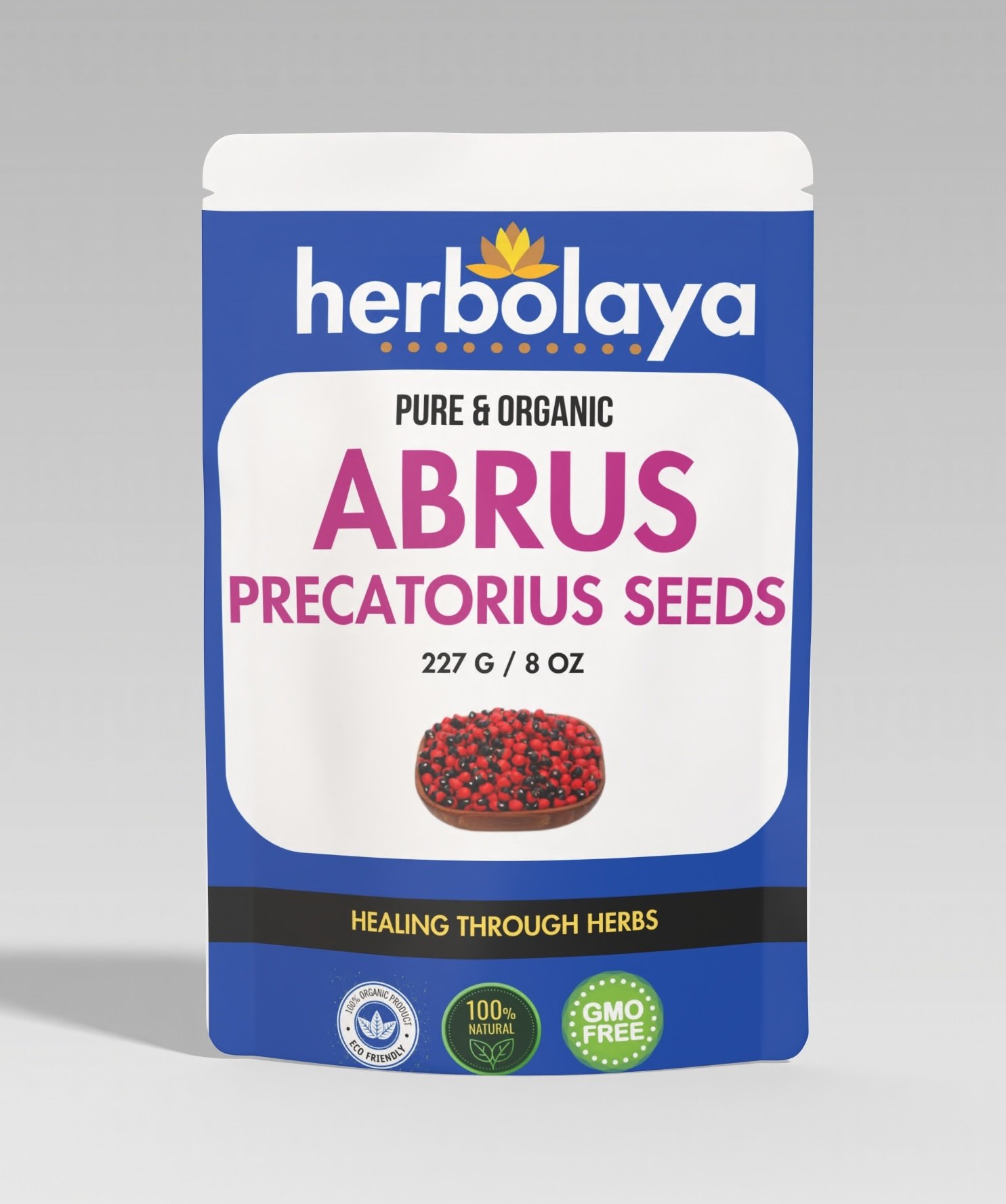Rosary Peas / Abrus Precatorius Seeds
₹670
Quantity: 100 g (3.5 oz)
Origin: India
Out of stock
Rosary Peas (Abrus Precatorius Seeds) – Sacred, Symbolic & Traditionally Significant
A Timeless Plant with Deep Cultural and Medicinal Roots
Abrus precatorius, commonly known as Rosary Pea or Jequirity, is a slender, perennial vine revered across cultures for its vibrant red seeds and spiritual significance. While these striking seeds are not for consumption due to the natural presence of Abrin (a toxic compound), they are widely used in traditional rituals, ornamentation, natural crafts, and cultural instruments.
Rosary Peas have historically held spiritual value in Indian, Caribbean, African, and Southeast Asian cultures—symbolizing devotion, love, and protection. In many regions, the seeds are incorporated into prayer beads, jewelry, and folk instruments, making this plant more than just a botanical curiosity—it’s a symbol of tradition and belief.
Botanical & Traditional Overview
-
Botanical Name: Abrus precatorius
-
Plant Type: Perennial climber
-
Not Edible: Highly toxic due to Abrin – strictly for ornamental and traditional use only
This graceful climber features feathery, pinnate leaves and delicate twining stems that can easily trail over trellises, fences, or balcony gardens. The seeds it produces are round, glossy, and red with a characteristic black spot—giving them the name Crab’s Eye or Red Bead Vine.
Traditional & Decorative Uses
Though not used for internal medicinal purposes due to toxicity, Rosary Peas have significant traditional and non-edible applications:
-
Used in spiritual rituals and prayer beads in various cultures
-
Commonly featured in folk instruments and rattles for their hard, sound-producing texture
-
A natural component in beadwork and jewelry, symbolizing love and faith
-
Grown in home gardens, terrace gardens, and herbal sanctuaries as a sacred or ornamental plant
Regional Names & Cultural Significance
The Rosary Pea is recognized by different names across regions, reflecting its widespread traditional importance:
India & South Asia:
-
Hindi: Ratti, Gunja
-
Tamil: Kundumani
-
Kannada: Gulaganji
-
Malayalam: Kunni
-
Telugu: Guriginja
-
Sanskrit: Gunja
-
Urdu: Ratti
Other Global Names:
-
English: Jequirity, Crab’s Eye, Love Pea, Precatory Bean
-
Caribbean/Africa: Jumbie Bead, John Crow Bead, Weather Plant
-
Malaysia/Indonesia: Akar Saga
-
West Indies: Coral Bead, Wild Licorice
These seeds have been traditionally measured for gold weights in ancient India and are still used in ayurvedic symbolism and protective talismans, though strictly for external and spiritual use.
Why Choose Rosary Peas from Herbolaya?
At Herbolaya, we understand the sacred value of traditional plants. Our ethically sourced Rosary Peas are ideal for cultural use, educational botany, and ornamental gardening. Every batch is handled with care, ensuring you receive authentic, naturally vibrant seeds suitable for non-edible traditional applications.
Grow tradition. Celebrate symbolism. Bring home the cultural charm of Rosary Peas with Herbolaya.
| Weight | 0.227 kg |
|---|
Be the first to review “Rosary Peas / Abrus Precatorius Seeds” Cancel reply
You must be logged in to post a review.




Reviews
There are no reviews yet.